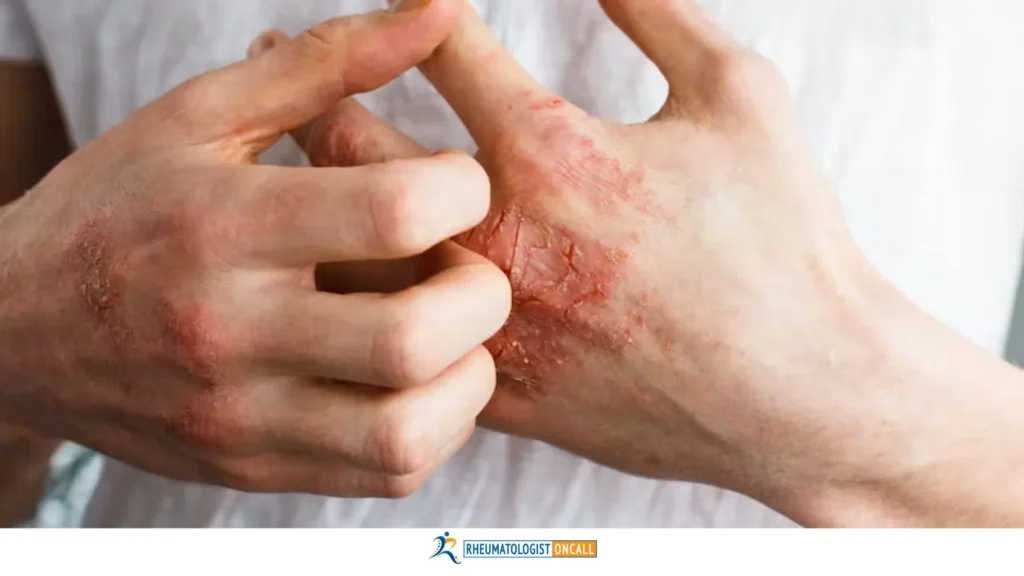SHARE
Feeling fatigued, dealing with joint pain, dryness, skin changes, persistent fever, muscle weakness, neurological symptoms, unexplained weight loss, unusual hair loss, or kidney issues? These symptoms may not be random and could indicate underlying autoimmune diseases. In this comprehensive guide, Dr. Girnita, a rheumatologist experienced in diagnosing and managing these conditions, reveals the top 10 signs of autoimmune diseases. Recognizing these signs early on can lead to timely medical intervention and better health outcomes.
#1 Fatigue: Beyond Everyday Tiredness
Fatigue associated with autoimmune diseases like Lupus and Rheumatoid Arthritis is profound and persistent. It affects mental clarity, physical strength, and overall quality of life. People experiencing autoimmune-related fatigue often describe it as carrying a constant burden that doesn’t lighten with rest. Many patients with rheumatoid arthritis or other inflammatory arthritis will complain about fatigue. The most common cause is the ongoing fight of your body with inflammation. To manage fatigue effectively, it’s essential to address the underlying autoimmune condition.
#2 Joint Pain and Swelling: Persistent Discomfort
Autoimmune diseases often manifest as consistent joint pain and swelling that cannot be resolved. Rheumatoid Arthritis may affect smaller joints in the hands and feet, while Gout is known for intense pain in the big toe. These symptoms can severely impact mobility and daily activities. Early diagnosis and treatment can prevent further joint damage and improve your overall well-being.
#3 Dryness: Beyond Weather-Related Symptoms
Persistent dryness of the mouth, eyes, or skin is a common sign of autoimmune diseases, especially in Sjogren’s syndrome patients. Dryness in the mouth can lead to difficulty swallowing and an increased risk of dental problems. Dryness of the eyes can cause irritation, blurred vision, and sensitivity to light. Furthermore, dry skin can lead to itching and discomfort. If you’re experiencing persistent dryness, consult a specialist to address the underlying autoimmune condition and alleviate your symptoms.
#4 Skin Changes: More Than Cosmetic Concerns
Skin changes in autoimmune diseases, such as rashes, dry white patches, or ulcers, could indicate serious internal issues. Different conditions like Dermatomyositis, Vasculitis, and Psoriasis have distinct skin changes. For instance, Dermatomyositis may present with a violet-colored rash on your eyelids, knuckles, or elbows. At the same time, Vasculitis can cause palpable purpura – raised, reddish-purple spots due to bleeding under the skin. If you notice any unusual changes to your skin, consult a rheumatologist for a thorough evaluation.
#5 Persistent Fever: Unrelenting and Low-Grade
A low-grade, persistent fever unresponsive to regular medications, could be a telltale sign of autoimmune conditions like Lupus and Rheumatoid Arthritis. Autoimmune-related fevers often persist for an extended period and can cause discomfort and fatigue.
#6 Muscle Weakness: A Steady Decline in Strength
Muscle weakness associated with conditions like Polymyalgia Rheumatica, and Dermatomyositis can lead to pronounced weakness around the shoulders and hips. This weakness can interfere with everyday activities and significantly impact your independence and quality of life. Seeking medical attention early on can help manage the condition and prevent further muscle deterioration.

#7 Neurological Symptoms: Numbness, Tingling, and Vision Loss
Neurological symptoms, such as tingling, numbness, or brief vision loss, could indicate diseases like Lupus and Vasculitis and should not be ignored. These symptoms may suggest nerve inflammation or damage.
#8 Unexplained Weight Loss: A Red Flag
Unexplained weight loss might be due to systemic inflammation or nutrient absorption issues in conditions like Giant Cell Arteritis or systemic Vasculitis. Sudden and significant weight loss without any apparent cause should be taken seriously and evaluated by a specialist. Early intervention can prevent further complications and help restore a healthy weight.
#9 Unusual Hair Loss: Beyond Aesthetics
Significant, unusual hair loss can indicate autoimmune diseases like Lupus and Vasculitis, indicating underlying inflammation affecting the hair follicles. Hair loss due to autoimmune conditions differs from typical shedding, and it’s crucial to identify and address the cause promptly. A rheumatologist can help diagnose the underlying issue and recommend appropriate treatment options.
#10 Kidney Issues: Swelling and Urine Changes
Unexplained swelling in legs and feet or changes in urine may hint at kidney diseases like Lupus or ANCA Vasculitis, indicating underlying kidney inflammation or damage. Kidney involvement in autoimmune diseases can lead to serious complications if left untreated. If you notice any kidney-related symptoms, it’s essential to seek immediate medical attention and consult a rheumatologist for proper evaluation and management.
Conclusion
Recognizing the early signs of autoimmune diseases is crucial for timely intervention and improved health outcomes. If you have concerns about any of these symptoms, don’t delay seeking help from a specialist. At Rheumatologist on Call, we are dedicated to serving patients in multiple US states to provide personalized care and support for your autoimmune condition.
Don’t wait; take the first step towards a healthier future by calling Rheumatologist on Call today.
Remember, knowledge is power, and taking action can make all the difference in your health.
Thank you for reading!














